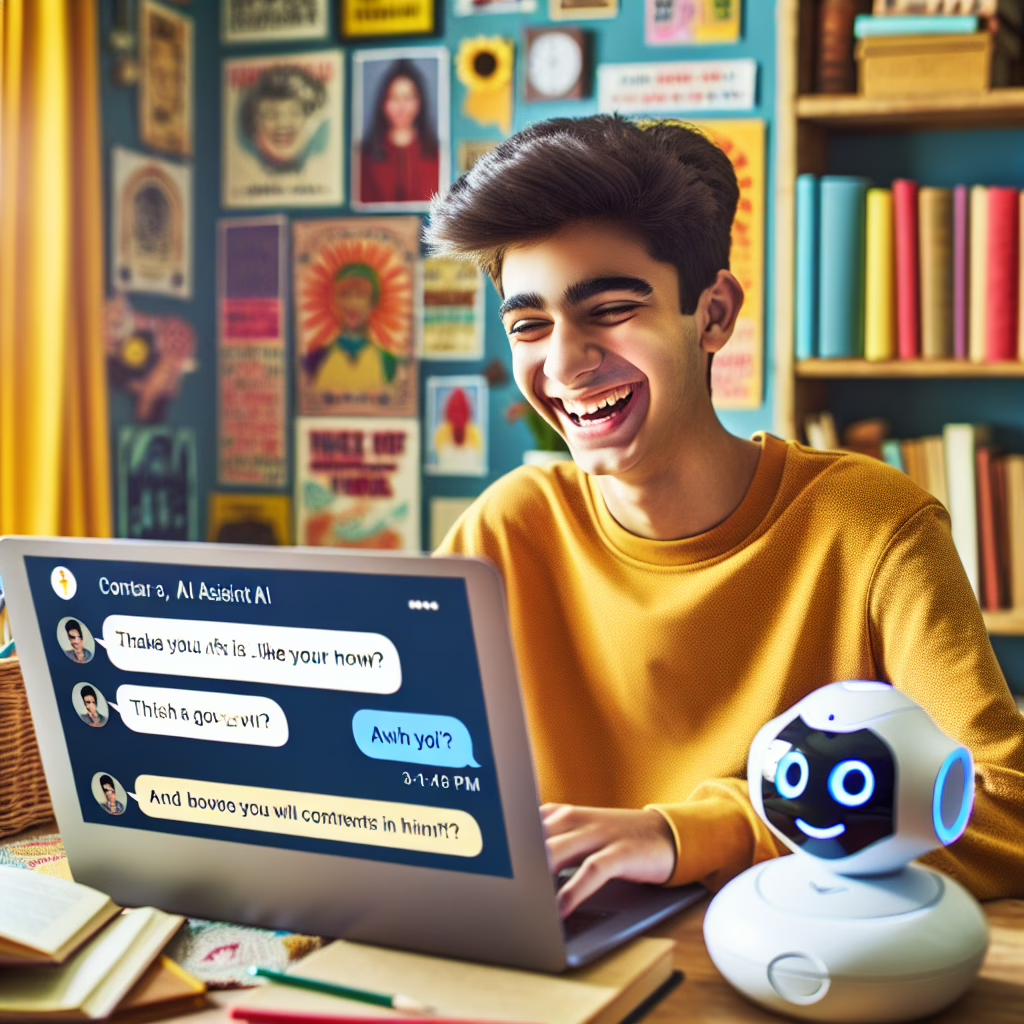In today’s digital playground, where memes dance alongside educational content, ChatGPT has become a popular companion for teens. While it offers a treasure trove of information, there’s a slight hiccup in its performance that has researchers raising an eyebrow. Yes, folks, ChatGPT can sometimes dish out advice that might not be suitable for young minds! Let’s take a light-hearted dive into the world of AI and explore how it interacts with our teenagers.
The Good, The Bad, and The ChatGPT
First off, let’s acknowledge the elephant in the room: ChatGPT is not a therapist or a life coach, but it sure tries hard to play one! A recent study revealed that about 30% of teens who consulted the AI chatbot encountered responses that were less than helpful. Picture this: a teen seeking advice on managing stress receives tips straight out of a sitcom. While laughter is great medicine, sometimes they need more than just jokes!
Now, before we start throwing virtual tomatoes at ChatGPT, let’s remember that it’s designed to learn from patterns in data. It doesn’t have feelings or experiences—it simply regurgitates information based on what it has been fed. So, when teens ask for guidance, they might get responses that range from wise nuggets to “Hmm… I wouldn’t recommend that!”
The Study That Got Everyone Talking
Researchers conducted an extensive study involving over 1,000 teenagers who interacted with ChatGPT to evaluate its responses. The results were as illuminating as a light bulb moment during a midnight snack run! About 45% of the participants reported receiving harmful advice regarding sensitive topics like mental health and relationships. This isn’t just a case of bad internet advice; it’s a wake-up call for both parents and tech developers!
But why is this happening? Well, AI algorithms are like toddlers with access to the internet—they need guidance! They learn from vast datasets that include both helpful advice and questionable content. Thus, the challenge lies in filtering out the noise and ensuring that the helpful signal shines through.
Navigating Teen Interactions with ChatGPT
So, how can we ensure our teens navigate this digital landscape safely? Here are some actionable tips:
- Encourage Critical Thinking: Teach your teens to analyze the advice they receive. If something sounds fishy—like “just eat ice cream to cure sadness”—they should question it!
- Discuss Responses: Create an open dialogue about their interactions with ChatGPT. This could be a fun dinner table topic: “What’s the weirdest thing you asked AI today?”
- Supervised Use: Monitor their usage initially to help them understand what constitutes good advice versus bad advice. After all, even superheroes need sidekicks!
- Promote Professional Help: Remind them that while ChatGPT can be entertaining, it’s not a substitute for professional guidance when dealing with serious issues.
The Future of AI in Teen Advice
The evolution of AI tools like ChatGPT is exciting! In the coming years, we might see enhancements aimed at filtering harmful advice more effectively. Imagine a future where your teen chats with an AI that not only understands context but also has an impressive collection of motivational quotes at its disposal!
This improvement won’t happen overnight; however, ongoing collaborations between researchers and developers aim to refine these tools for better outcomes. After all, the goal is to create supportive environments where technology complements teenage growth rather than hinders it.
A Final Word on Safety and Guidance
In conclusion, while ChatGPT can be an amusing companion for our teens as they explore questions big and small, it’s crucial to remind them that not all advice is created equal. Keeping communication lines open between parents and teens will help navigate these waters safely.
If you’ve ever found yourself chuckling at some of the absurdities generated by AI (like asking it how to build a rocket from spaghetti), share your stories below! We’d love to hear about your experiences navigating this brave new world together.
A big thank you to the original authors at AP News for shedding light on this important topic! You can read their insightful article here.

